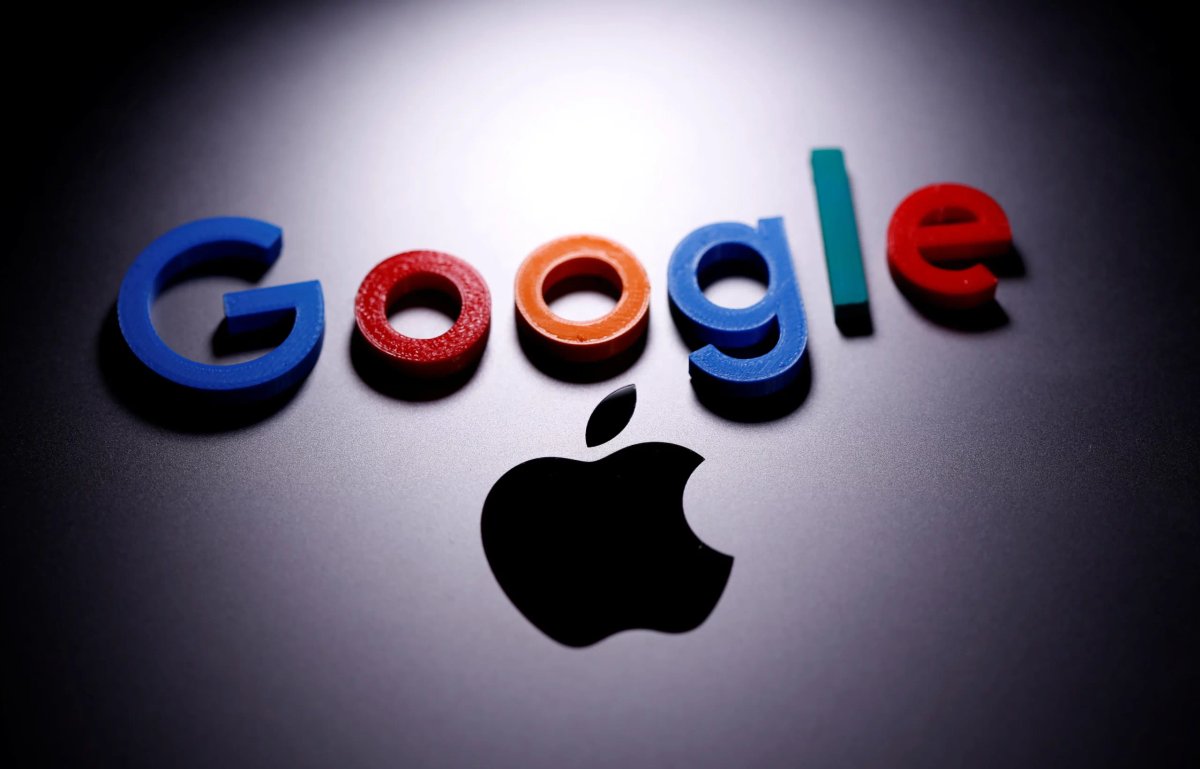Google, Apple breakups on the agenda as global regulators target tech


By Foo Yun Chee and Supantha Mukherjee
BRUSSELS/STOCKHOLM (Reuters) -Big Tech is facing its biggest challenge in decades as antitrust regulators on both sides of the Atlantic crack down on alleged anti-competitive practices that could result in break-up orders to Apple and Alphabet’s Google, a first for the industry.
That in turn could inspire watchdogs around the world to pile on, as evidenced in the growing number of antitrust probes in various countries following the opening of EU and U.S. cases. Since AT&T was broken up exactly 40 years ago, no company has faced the possibility of a regulator-led break-up in the United States until now.
Google has said it disagreed with the EU’s accusations while Apple said the U.S. lawsuit is wrong on the facts and the law.
In 1984, AT&T, also known as Ma Bell, was broken up into seven independent companies called “Baby Bells” to open up one of the most powerful monopolies of the 20th century. AT&T, Verizon and Lumen are currently the only surviving entities.
Regulators now allege companies such as Apple and Google have built impenetrable ecosystems around their products, making it difficult for customers to switch to rival services, which led to the coining of the term walled gardens.
The U.S Department of Justice on Wednesday warned Apple, a $2.7 trillion company, that a break-up order is not excluded as a remedy to restore competition after it teamed up with 15 states to sue the iPhone maker for monopolising the smartphone market, thwarting rivals and inflating prices.
Even so, it will likely take years to decide the case, which Apple has vowed to fight.
The U.S. actions come on the heels of other mounting threats across Europe this week.
Big Tech will face more scrutiny shortly with Apple, Meta Platforms and Alphabet likely to be investigated for potential Digital Markets Act (DMA) violations that could lead to hefty fines and even break-up orders for repeated breaches, people with direct knowledge of the matter told Reuters on Thursday, on the condition of anonymity.
EU antitrust chief Margrethe Vestager helped pave the way for drastic measures last year when she accused Google of anti-competitive practices in its money-spinning adtech business and that it may have to divest its sell-side tools.
She said that requiring Google to sell some of its assets seemed to be the only way to avoid conflicts of interest as it would prevent Google from allegedly favouring its own online digital advertising technology services versus advertisers and online publishers.
Vestager is expected to issue a final decision by the end of the year.
European Parliament lawmaker Andreas Schwab, who was heavily involved in drafting landmark EU DMA tech rules that kicked in this month, said lawmakers want bold action against Big Tech which flouts rules.
“If they don’t comply with the DMA, you can imagine what Parliament will ask for. Break-ups. The ultimate goal is to make markets open, fair and allow more innovation,” he said on Friday.
It is far from certain that regulators will issue break-up order as they mull options and any action may just result in a fine. Legal experts also suggested the case against Apple, drawing from the 1998 case against Microsoft, could be more difficult this time.
“In the European Union, there is less of a tradition, with splitting a company seen as a last resort. It has never happened before,” said a Commission official, speaking on condition of anonymity.
Apple’s highly integrated system would also make a break-up difficult compared with Google, said lawyer Damien Geradin at Geradin Partners, who is advising several app developers in other cases against Apple.
“It seems to me much more complicated. You are talking about something that is integrated, for example you can’t force Apple to divest its App Store. That doesn’t make sense,” he said.
He said it would be better to impose behavioural remedies on Apple that obligates it to do certain things while in the case of Google, a break-up order could simply target acquisitions made to strengthen its key services.
“What’s more likely is they (DOJ) go for remedies like opening up hardware functionality, or making sure developers aren’t being discriminated against in terms of pricing,” said Max von Thun, director of advocacy group Open Markets.
“I think they want to say that everything’s on the table, but it doesn’t necessarily mean they’ll choose that path,” he said.
Apple gets most of its nearly $400 billion-a-year revenue from selling hardware — iPhones, Macs, iPads and Watches — followed by its Services business, which will brings in roughly $100 billion a year.
Structural remedies such as break-ups will ultimately be tested in courts, said Assimakis Komninos, partner at law firm White & Case.
“I would say that experiences of imposed structural measures, such as breakups, are not many, but the small past experience shows that this is very tricky, aside from the formidable legal challenges,” he said.
(Reporting by Foo Yun Chee in Brussels and Supantha Mukherjee in Stockholm, additional reporting by Martin Coulter in London; Editing by Ken Li and Anna Driver)
Antitrust regulation refers to laws and policies designed to promote competition and prevent monopolistic practices in the market, ensuring fair competition among businesses.
A monopoly exists when a single company or entity has exclusive control over a market or a product, limiting competition and consumer choice.
A digital market is an online platform where goods and services are bought and sold, often involving various technologies to facilitate transactions.
A breakup order is a legal directive issued by regulators requiring a company to divest certain assets or divisions to restore competition in the market.
The Digital Markets Act (DMA) is a regulatory framework in the European Union aimed at ensuring fair competition in digital markets by imposing obligations on large tech companies.
Explore more articles in the Top Stories category











